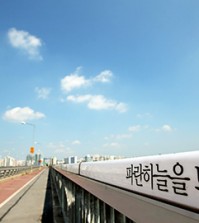- S. Korea unveils first graphic cigarette warnings
- US joins with South Korea, Japan in bid to deter North Korea
- LPGA golfer Chun In-gee finally back in action
- S. Korea won’t be top seed in final World Cup qualification round
- US men’s soccer misses 2nd straight Olympics
- US back on track in qualifying with 4-0 win over Guatemala
- High-intensity workout injuries spawn cottage industry
- CDC expands range of Zika mosquitoes into parts of Northeast
- Who knew? ‘The Walking Dead’ is helping families connect
- California Assembly OKs highest minimum wage in nation
Suicide from ‘English stress’ ruled as industrial mishap
By Lee Kyung-min
The family of a worker who committed suicide after suffering depression due to his inability to learn English is entitled to state compensation, the Supreme Court ruled recently.
The highest court overturned the lower courts’ decisions that did not recognize the man’s death as an industrial accident, saying he deserves state compensation.
The family filed a compensation suit against the government after the man, surnamed Oh, jumped off a 10-story building in Yeouido, Seoul, while drinking coffee with his two colleagues on Dec. 29, 2008.
Unlike the lower courts, the top court said his death was caused by depression induced from work stress.
“Oh committed suicide after suffering depression from his inability to carry out missions that required English proficiency,” the court said in its ruling.
According to the ruling, Oh was a healthy man, and showed no signs of any depression until he took over jobs that needed English ability.
“The lower courts’ rulings that failed to recognize a link between his suicide and the stress from work were wrong, thus the ruling is hereby overturned,” the court said.
According to court documents, Oh was a manager at local construction company. In July 2008, the company offered him to go to Kuwait for an oil plant construction. Oh discovered that all business should be conducted in English, and his depression started soon after.
The company sent him for a 10-day preliminary trip in October, after which his depression worsened.
Since July, he sought medical attention at numerous institutions, some of whom diagnosed him with “acute depression,” according to court documents.
“He suffered from chest pain, insomnia, indigestion, and diarrhea. He said he was under immense pressure because his poor English would ruin the job and the company and his reputation as a whole,” a doctor wrote in his chart, according to court documents.
Five months later, in December, the company promoted him to manager with the Kuwait deal in mind, but Oh declined the job saying he was unqualified because of his poor English.
Instead of dispatching him abroad, the company asked him move to another office from Jan. 1 2009.
On Dec. 28, 2008, a day before he killed himself, Oh told his wife that his confidence was depleted. “In case of company layoffs, I would be the first to go. My English is so bad that I cannot go abroad to seal company business. What kind of boss would I be to workers under me? I want to die,” he was quoted as saying by his wife, court documents added.

















